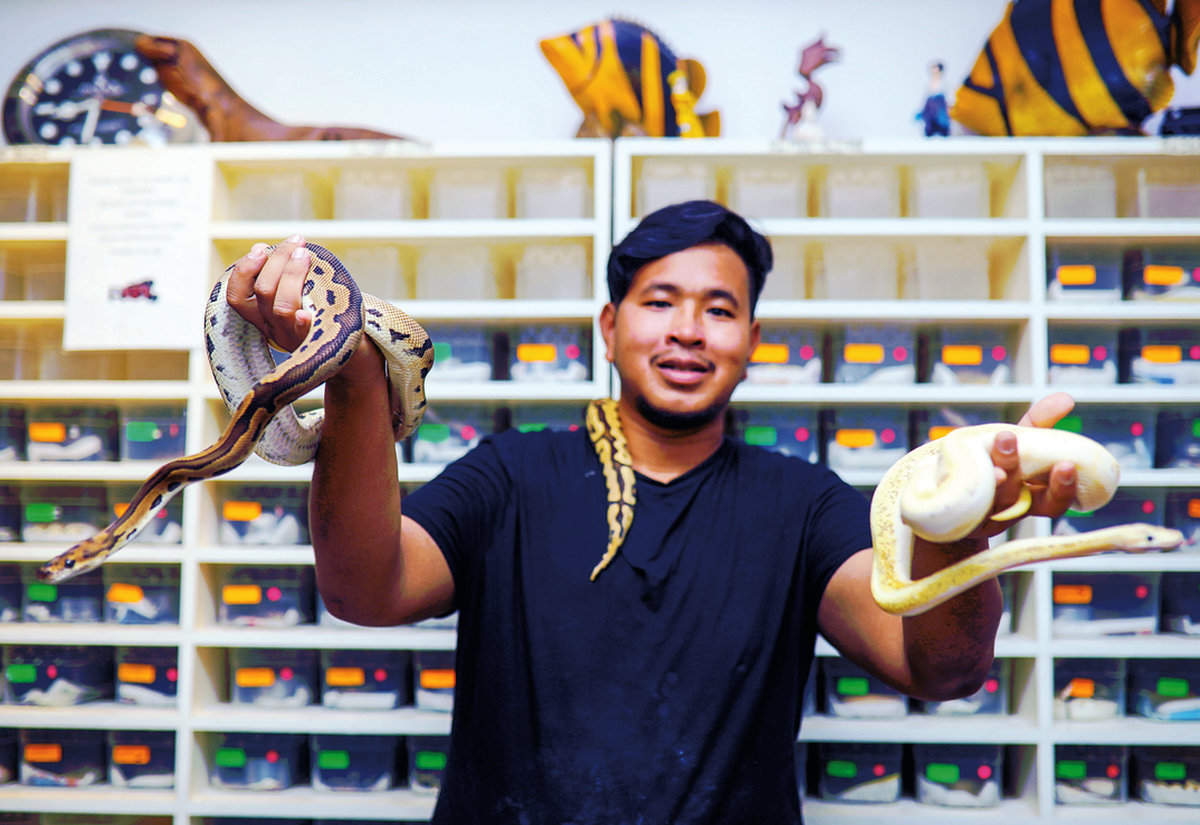PETALING JAYA: The rising trend of keeping snakes as exotic pets in Malaysia, including venomous and protected species, has sparked alarm among conservationists and authorities, who warn that the practice is not only dangerous but often illegal.
Concerns are mounting over public safety, animal cruelty and the exploitation of endangered wildlife, as authorities investigate reports of live animals, including stray cats being used as snake feed.
Wildlife and National Parks Department director-general Datuk Abdul Kadir Abu Hashim said the ownership, trade and keeping of snakes in Peninsular Malaysia are regulated under two legislations, the Wildlife Conservation Act 2010 [Act 716] and the International Trade in Endangered Species Act 2008 [Act 686].
The latter enforces the provisions of the Convention on International Trade in Endangered Species of Wild Fauna and Flora (CITES).
“Certain snakes are categorised as either ‘protected’ or ‘totally protected’,” he said.
“Protected species may be kept with a valid licence, while totally protected species generally cannot be owned privately unless for approved scientific or conservation purposes.”
He added that any species listed under the CITES appendices cannot be kept or traded without a special permit, especially in international transactions.
Individuals who wish to import, export, sell or keep snakes listed under Act 716 or Act 686 must apply for a licence or special permit from the department.
“The approval of such permits is not automatic and subject to several considerations, including the conservation status of the species, intended purpose (such as research or education) and experience and capacity to safely handle wildlife.”
He also said the department imposes stringent controls on venomous snakes such as cobras (Naja kaouthia, Naja sumatrana) and vipers, due to the public safety risks and their ecological sensitivity.
“Keeping venomous snakes as pets is generally prohibited. They are also restricted from being used in public shows, mobile exhibitions or private collections without prior approval.”
Abdul Kadir said the department monitors and inspects individuals and facilities granted permits to ensure compliance.
Amid the rise in exotic pet ownership, authorities are also investigating reports of pet or stray cats being used to feed snakes.
“Such acts raise ethical and legal concerns. Under the Animal Welfare Act 2015, all animals, including prey, must be treated humanely.”
He explained that feeding live vertebrates such as cats to snakes could be considered an offence if the act causes distress or if the prey is not euthanised.
“This may amount to animal cruelty and could be enforced by the Veterinary Services Department.”
Universiti Putra Malaysia wildlife management senior lecturer Dr Tengku Rinalfi Putra said although some species may be kept with a licence, he opposed the private ownership of venomous snakes.
“These are wild animals that require natural ecological inputs to thrive and replicating that in captivity is nearly impossible. Captivity limits their ability to behave naturally and creates safety risks for people nearby.”
He said Malaysia’s wildlife laws are adequate but need stricter enforcement.
“Many violations go unnoticed or unpunished. Illegal trade and unlicensed ownership are being normalised in some circles.”
“Some claim the permit process is difficult, but these systems are in place to protect the animals and the public.”
He added that growing interest in exotic pets is putting pressure on vulnerable species.
“Ownership could accelerate population declines, especially when animals are taken from the wild,” he said, urging the public to support licensed zoos and genuine conservation efforts.
He also noted a lack of individual-based guidelines for private ownership.
“What we have are zoo-based guidelines, not policies suited for individuals. We need a framework but there is no method to accomplish it yet.”
He said keeping wildlife for appearances does not aid conservation.
“Captive breeding rarely supports reintroduction due to dietary changes and the loss of survival skills.
“Appreciation for wildlife means protecting them in their natural habitats, not caging them for looks.”









